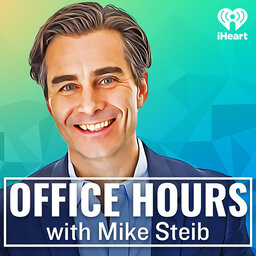David Rosenblatt, CEO of 1stDibs: Only in New York
🎙️ On pioneering internet advertising at DoubleClick and their transformative $3.1B sale to Google
🎙️ How the internet is transforming luxury … and everything else
🎙️ Views on the new X.com from a long time Twitter board director
🎙️ And why a leader’s job is “not to make the music, but to be the conductor”
Tune in this week for a great hang with a terrific leader and Silicon Alley OG.
Explore more
🤘 Discover more at mikesteib.com.
🌟 Send in your questions for our next episode at 213.419.0596.
In 1 playlist(s)
Office Hours with Mike Steib
Mike sits down with the world’s most important Chief Executives to answer your most pressing questio…Social links
Follow podcast
Recent clips

Sarah Friar, CEO of Nextdoor: The Future of Local
35:43

Carolyn Starrett, CEO of Flatiron Health: Curing Cancer
33:42

Mariam Naficy, Founder of Minted.com, Managing Partner of Heretic Ventures: Supporting Artists and Creators
42:40
 Office Hours with Mike Steib
Office Hours with Mike Steib